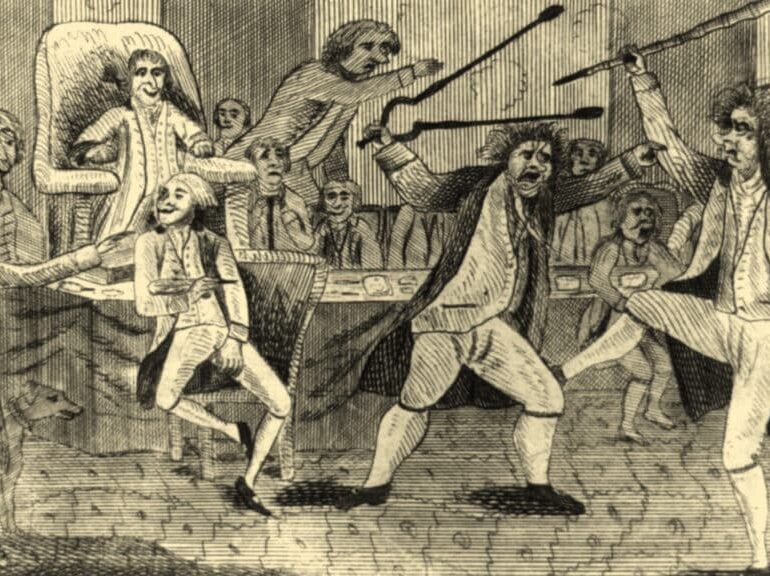
Free Speech on Trial: Jailed But Re-elected
By: Michael Boldin
In a time of political turmoil, when criticism of the government could land you behind bars, Matthew Lyon, a congressman and fierce critic of the Federalist administration of John Adams, dared to defy the Sedition Act, a law that criminalized free speech. This would lead to an extraordinary story of the only person in US history to be re-elected – while in jail.
It’s also a tale of government power being used to target opponents.
In the summer of 1798, amidst rising political tensions, the Federalist-controlled Congress passed the Sedition Act. This controversial law made it a crime to publish “false, scandalous, and malicious writing” against the government, the President, or Congress (but not the Vice-President).
As James Madison put it in the Virginia Resolutions of 1798, the Sedition Act gave the federal government power “expressly and positively forbidden by one of the amendments” to the Constitution:
“A power, which more than any other, ought to produce universal alarm, because it is leveled against that right of freely examining public characters and measures, and of free communication among the people thereon, which has ever been justly deemed, the only effectual guardian of every other right.”
Passage of the Sedition Act wasn’t just a political stunt. It was essentially a weapon used to silence dissent and target political opponents. And Matthew Lyon, a fierce critic of the Adams administration, was about to be in the crosshairs.
It was vigorously enforced by the administration – mostly against editors of Democrat-Republican newspapers. There were at least 17 verifiable indictments, 14 under the Sedition Act itself and three under common law. The chilling effect of the Sedition Act also effectively shut down many dissenting party newspapers.
Benjamin Franklin’s grandson was among those prosecuted. Federalists sent “committees of surveillance” to spy on Benjamin Franklin Bache, editor of the Philadelphia Democrat-Republican Aurora. Bache called the Alien and Sedition Acts an “unconstitutional exercise of power.” He was ultimately charged with libeling President John Adams, and sedition for his French sympathies. Bache died of yellow fever before he was brought to trial.
A sitting member of Congress even found himself caught up in the web spun by the Sedition Act. Matthew Lyon represented Vermont in Congress and also served as the editor of the Republican paper The Scourge of Aristocracy. During his re-election campaign,
Lyon wrote a reply to his Federalist opponents, accusing President Adams of engaging in a “continual grasp for power” and of having “an unbounded thirst for ridiculous pomp, foolish adulation, and selfish avarice.”
He also blasted the president for using religion to drum up war against France, writing he could not support the executive, “when I shall see the sacred name of religion employed as a state engine to make mankind hate.”
Lyon was indicted on sedition charges on Oct. 5, 1798, and arrested the next day. A federal judge fined Lyon $1,000 and sentenced him to four months in prison.
He served time in a 16? x 12? cell used for felons, counterfeiters, thieves, and runaway slaves. Judge William Paterson – an avid nationalist and supporter of the Federalist Party – lamented the fact he couldn’t impose a harsher sentence.
But that didn’t stop Matthew Lyon or his supporters. He won reelection to congress – while in prison – by a landslide.
It gets even better. Lyon’s election ultimately gave him the deciding vote in the House of Representatives during the wild and contentious election of 1800, which resulted in Thomas Jefferson becoming president.
Lyon’s story is a powerful reminder of the importance of free speech and unwavering principles, even in the face of a government willing to throw you in jail for them.